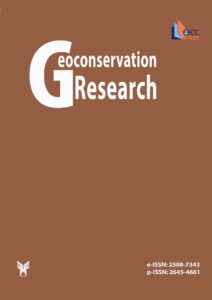Geopolitical Concerns Arising From Mining Activities in Some Parts of Nigeria and Cameroon
Authors
Abstract
Environmental problems due to mining activities in Nigeria and Cameroon have been a source of geopolitical concern. Here, we explore these issues in terms of the balance of economic benefits from mining and ensuring geological site maintenance and enhancement. The study was carried out through the use of questionnaires and interviews. 179 respondents were sampled, 147 in Nigeria and 32 in Cameroon. The results suggest that there are more perceived benefits than losses in mining activities. Responses show that over 90% (40.11% agree and 51.98% strongly agree) confirmed that mining has brought gains to their community and so mining activities should continue. On the other hand, fewer than 8% (4.52% disagree and 3.39% strongly disagree) are against the view that mining brought gains to their community and so mining activities should be stopped. Some of the gains from mining activities include employment opportunities and assistance or compensation received from the mining companies. Although there are geopolitical concerns, as shown by the 60.23% responses agreeing that there are conflicts between mining companies and the community due to mining activities, these concerns are minimal. The concerns range from negative impacts of mining such as pollution-induced health problems as a result of contaminated water and land, destruction of aquatic creatures, mining pits as death traps, as well as destruction of farm lands. Geopolitical concerns include lack of payment of compensation, tax and royalties as well as corruption of community leaders who receive benefits that ought to accrue to the entire community. The study concludes that with regulations of the negative effect of mining, mining can be very beneficial to the people because the negative geopolitical concerns raised are less than the benefits derived.
Read the full text of the article


